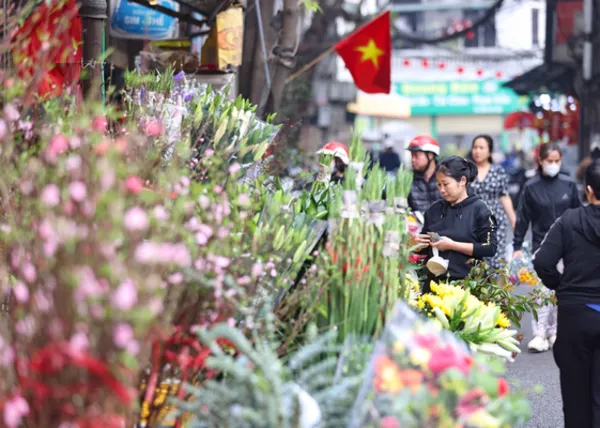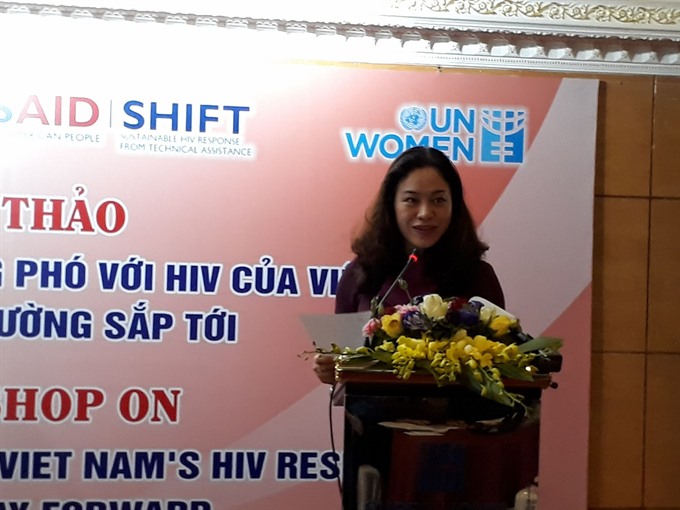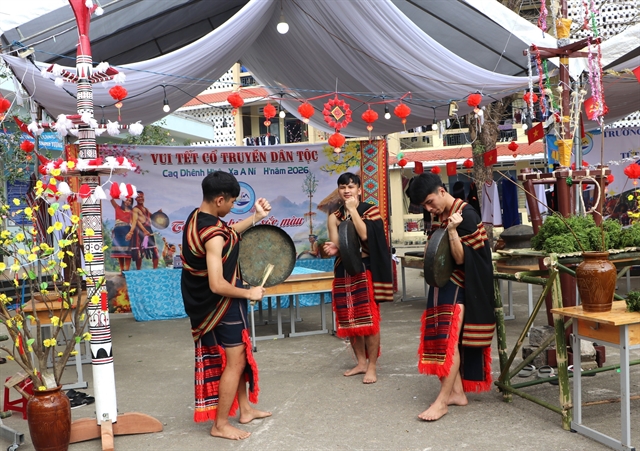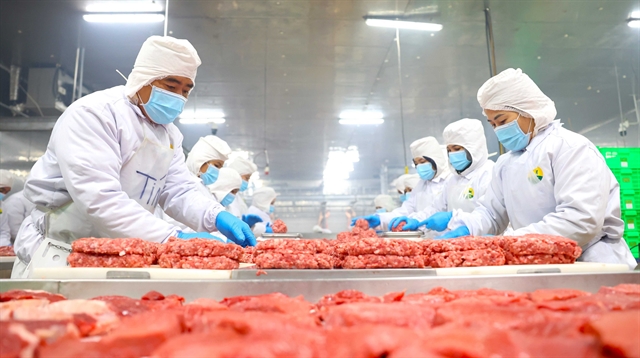 Society
Society

The current national response to HIV fails to adequately respond to the diverse needs and rights of the main affected groups – women and girls.
 |
| Phan Thị Thu Hương, deputy director of the Việt Nam Authority of HIV/AIDS Control gives a speech at the conference. — VNS Photo Thu Trang |
HÀ NỘI — The current national response to HIV fails to adequately respond to the diverse needs and rights of the main affected groups – women and girls.
Phan Thị Thu Hương, deputy director of the Việt Nam Authority of HIV/AIDS Control (VAAC), made the statement at a conference held yesterday in Hà Nội.
Although Việt Nam’s programmes of coping with HIV marked achievements in four fields including prevention, treatment, discrimination prevention and improving on challenges related to gender inequality, it still needed to take more action to ensure that women receive enough help, she said.
Speaking at the workshop, Elisa Fernandez, UN Women Head of Office said, “Women living with HIV face gaps and constraints in accessing prevention, treatment, care and support services. Women, particularly those most affected by the epidemic, also largely remain on the margins of policy and decision-making spaces.”
These are some of the reasons why there is a rise in reported cases of HIV-positive women in Việt Nam from 24 per cent in 2007 to 33 per cent in 2014.
“To achieve gender equality and empowerment of women and girls, HIV response needs to focus on three areas,” Fernandez said.
First, improving access to sexual and reproductive health and HIV services. Second, mobilising communities to transform unequal gender norms and behaviours, particularly by engaging men. Third, empowering women and girls in all their diversity by investing in women’s leadership in HIV response, she said.
Deputy director Hương emphasised that in the future, the Ministry of Health (MoH) would improve education on HIV/AIDS prevention and control, especially for women and children, in which they will prevent discrimination against people living with HIV.
The MoH will improve women’s access to equipment to reduce the spread of HIV, including condoms, and give more training to consultancy workers to help women and girls resolve their problems related to tests, diagnosis and personal information security.
During the half-day workshop, more than 80 participants from international organisations, governmental agencies, academia, civil society and other stakeholders discussed key findings of the VAAC study, identified the gaps and challenges in mainstreaming gender equality and empowering women in the national HIV response, and provided a set of recommendations for improved HIV policies and programmes.
Việt Nam was committed to ending the AIDS epidemic by 2030 and had demonstrated political leadership and commitment to join global efforts to address gender inequality and HIV.
By September last year, Việt Nam has 208,371 people living with HIV, more than 90,400 people living with AIDS and 90,000 people died of HIV/AIDS, according to the VAAC.
In the nine first months last year, the country discovered more than 6,800 people living with HIV, more than 3,400 people living with AIDS and 1,260 people died of HIV/AIDS. It was a decrease by 14 per cent, 39 per cent and 35 per cent compared with the same period last year, respectively. — VNS




